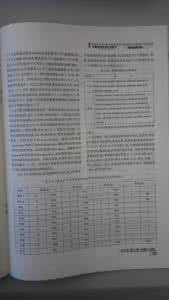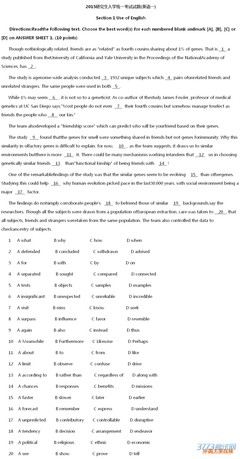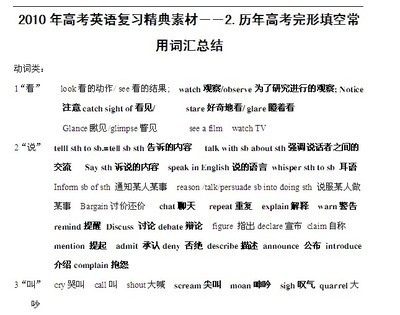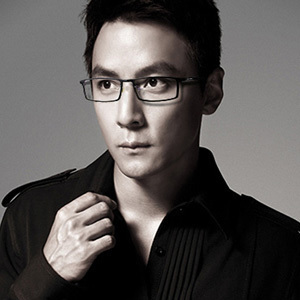(1)虹口
Napping for a while at daytime is a very smart and healthy move. The Mayo Clinic says naps relaxation, better mood and alertness, and a sharper working compared to getting more nighttime sleep, a mid-day nap was the best way to the mid-afternoon sleepiness.
According to the Harvard Health Letter, several studies have shown that people new information better when they take a nap shortly after learning it. And, most , a 2007 study of nearly 24,000 Greek adults in the Archives of Internal Medicine found that people who napped had a 37 percent reduced risk of dying from heart disease compared to people who didn‘t nap.
Of course, napping isn‘t for everyone. If you‘re suffering from inability to sleep, naps that are too long or taken too late in the day can with your ability to fall or stay asleep at night.
But for most, naps can make you feel sharper and happier. Naps provide different benefits on how long they are. A 20-minute nap will boost alertness and concentration; a 90-minute snooze (小睡) can creativity.
According to prevention.com, you a natural dip in body temperature between 1 p.m. and 3 p.m. A short nap at this time can boost alertness for several hours and, for most people, shouldn‘t being able to fall asleep at night.
Pick a dark, cozy place that‘s not too warm or too chilly. Prevention.com napping on the couch instead of in bed, so you‘re less to snooze for too long.
Surprisingly, the best place to take a nap may be a hammock (吊床) if you have one. A Swiss study last year found that people fell asleep faster and had deeper sleep when they napped in a hammock than in a bed. That same rocking motion that puts babies to sleep works wonders for grown-ups, too. 51. A. relieve 52. A. feeling 53. A. cope with 54. A. remark 56. A. regularly 57. A. exact 58. A. connect 59. A. focusing 60. A. enlarge 61. A. explore 62. A. produce 63. A. postpones 64. A. obliged
B. promote B. frame
B. put aside B. consider
C. operate C. sense
D. support D. mind D. carry upon D. concern D. frankly D. strongly D. accurate D. interfere D. basing D. enroll D. implement D. urge D. recommends D. attracted D. cultivated
C. talk about C. remember C. constantly C. heavily C. right C. relying
55. A. reportedly B. unbelievably B. enormously B. correct B. deal
B. depending B. engage
C. compete C. enhance C. exercise C. affect
B. experience B. handle
B. tempted B. published
B. discourages C. acknowledges C. adopted C. discovered
65. A. pronounced
(2)黄浦
In India, almost all marriages are arranged. Even among the educated middle classes in modern urban India, marriage is as much a concern of the families as it is of the __51__. So customary is the practice of arranged marriage that there is a special name for a marriage which is not __52__: It is called a ―love match‖.
On my first trip to India, I met many young men and women whose parents were in the process of ―getting them married‖. In many cases, the bride and groom would not meet each other before the marriage. __53__ they might meet for a brief conversation, and this meeting would take place only after their parents had decided that the match was __54__. Parents do not force their children to marry a person who either marriage partner finds unacceptable. But only after one match is refused will another be sought.
As a young American woman in India for the first time, I found this custom of arranged marriage __55__. How could any intelligent young person __56__ to such a marriage without great reluctance? It was __57__ to everything I believed about the importance of romantic love as the only basis of a happy marriage. It was also in conflict with my strongly held beliefs that the choice of such a close and permanent relationship could be made only by individuals __58__. If anyone had tried to arrange my marriage, I would have been __59__!
Sita, one of my young friends, was a college graduate with a degree in political science. She had been __60__ for over a year while her parents were arranging a match for her. I found it difficult to accept the obedient (顺从的) manner in which this well-educated young woman awaited the outcome of a process that would __61__ her spending the rest of her life with a man she hardly knew, a total stranger, __62__ by her parents.
In frustration and distress, I asked her, ―Don‘t you care who you __63__?‖ ―Of course I care,‖ she answered. ―This is why I must let my parents choose a boy for me. My marriage is too important to be arranged by such a(n) __64__ person as myself. In such matters, it is better to have my parents‘ __65__‖.
51. A. classes B. individuals C. society D. country
52. A. matched B. decided C. concerned D. arranged
53. A. After all B. In addition C. At most D. On average
54. A. comfortable B. imperfect C. suitable D. dissatisfying
55. A. acceptable B. amazing C. depressing D. strange
56. A. agree B. turn C. exchange D. devote
57. A. customary B. remarkable C. similar D. contrary
58. A. involved B. present C. informed D. available
59. A. ambitious B. proud C. rebellious D. puzzled
60. A. fighting B. protesting C. waiting D. dreaming
61. A. profit from B. hold back C. act out D. result in
62. A. picked out B. picked up C. taken up D. taken out
63. A. encounter B. favor C. marry D. join
64. A. intelligent B. unfortunate C. inexperienced D. careless
65. A. blessing B. guidance C. fortune D. promise
(3)静杨青宝
As anyone who has tried to lose weight knows, realistic goal-setting generally produces the best results. That is partially __51__ it appears people who set realistic goals actually work more efficiently, and make more effort, to achieve those goals.
What is far less understood by scientists, __52__, are the potentially harmful effects of goal-setting.
Newspapers relay (转发) accounts of goal-setting in industries and businesses up and down both Wall Street and Main Street, yet there has been __53__ little research on how the practice of setting goals may have __54__ to the current economic crisis, and unethical (不道德) behavior in general.
―Goals are widely used and promoted as having really beneficial effects. And yet, the same __55__ that can push people to make more effort in a constructive way could also motivate people to be more likely to __56__ unethical behaviors,‖ says Maurice Schweitzer, an associate professor at Penn‘s Wharton School.
―It turns out there‘s no economic benefit to just having a goal — you just get a psychological benefit.‖ Schweitzer says. ―But in many cases, goals have economic __57__ that make them more powerful.‖
A prime example Schweitzer and his colleagues mention is the 2004 __58__ of energy-trading giant Enron, where managers used financial encouragements to motivate salesmen to __59__ specific profit goals. The problem, Schweitzer says, is the actual trades were not __60__.
Other studies have shown that __61__ employees with unrealistic goals can force them to lie, cheat or steal.
Such was the case in the early 1990s when Sears __62__ a sales quota (配额) on its auto repair staff. It promoted employees to impose for work and to __63__ unnecessary repairs on a companywide basis.
Schweitzer admits his research runs counter to (违背) a very large body of literature that __64__ the many benefits of goal-setting. Advocates of the practice have argued with his team‘s use of such __65__ as news accounts to support his conclusion that goal-setting is widely over-recommended.
51. A. though B. unless C. when D. because
52. A. moreover B. furthermore C. however D. otherwise
53. A. surprisingly B. generally C. particularly D. potentially
54. A. objected B. contributed C. opposed D. tailored
55. A. definition B. appreciation C. motivation D. expression
56. A. engage in B. add to C. show off D. turn on
57. A. risks B. problems C. expenses D. rewards
58. A. claim B. collapse C. composition D. construction
59. A. need B. meet C. kneel D. feel
60. A. comfortable B. changeable C. favorable D. profitable
61. A. tiring B. burdening C. inspiring D. leading
62. A. overtake B. overlook C. overcharge D. overflow
63. A. blame B. discover C. complete D. direct
64. A. praises B. denies C. neglects D. excludes
65. A. problem B. factor C. purpose D. evidence
(4)浦东
It is officially known as The Swiss Re Tower, or 3 St. Mary Axe. As a typical example of green architecture in London, what is most remarkable about the building is tis energy-efficiency. ___51___ its artful design and some fancy technology, it is expected to consume up to 05% less energy than a conventional office building. Green architecture is ___52___ the way buildings are designed, built and run.
Supporters of green architecture argue that the approach has many ___53___. In the case of large office, for example, the ___54___ of green design techniques and clever technology can not only reduce energy consumption and environmental impact, but also reduce running costs, create a more ___55___ working environment, improve employee‘s health and productivity, reduce legal liability, and ___56___ property values and rental returns.
Going green saves money by reducing long-term energy costs: a survey of 99 green buildings in America found that on average, they use 30% less energy than conventional buildings. So any additional building costs can be ___57___ quickly. The traditional approach of trying to minimize construction costs, ___58___, can lead to higher energy bills and wasted materials.
Green buildings can also have less obvious ___59___ benefits. The use of natural daylight in office buildings, for example, besides reducing energy costs, also seems to make workers more productive. Lockheed Martin, an aerospace firm, found that absenteeism(缺勤) ___60___ by 15 after it moved 2,500 employees into a new green building in Sunnyvale, California. ___61___, the use of daylight in shopping complexes appears to increase ___62___. It also found that students in naturally lit classrooms performed up to 20% better. The ___63___ in productivity paid for the building‘s higher construction costs within a year.
Despite its benefits and its growing popularity, green architecture is still not as popular as expected. The main ___64___ is co-ordination(协调), for green buildings require much more planning by architects, engineers, builders and developers than traditional buildings. But, without doubt, green architecture will ___65___ to reshape the construction industry over the next five years, with ever more innovative, energy-efficient and environmentally friendly buildings. ―No one is doing this for fun,‖ he says. ―There‘s too much at risk.
51. A. In place of B. Thanks to
52. A. giving B. discovering
53. A. benefits B. factors
54. A. contrast B. completion
55. A. tense B. pleasant
56. A. involve B. enhance
57. A. recovered B. gained
58. A. in return B. for instance
59. A. environmental B. psychological
60. A. multiplied B. estimated
61. A. Similarly B. Contrarily
62. A. visits B. relations
63. A. performance B. confidence
64. A. interest B. progress
65. A. deserve B. help
(5) 普陀 C. In spite of C. changing C. techniques C. manufacture C. fierce C. share C. counted C. by contrast C. academic C. recorded C. Consequently C. sales C. increase C. solution C. work D. In addition to D. paving D. impacts D. combination D. temporary D. show D. valued D. in general D. economic D. dropped D. Necessarily D. satisfaction D. equal D. problem D. afford Many people complain that their memory is bad, particularly as they get older. Life would be so much easier if we could remember things __51__. So how can we improve our memory?
Many people think that repeating things is the best way to remember. While this undoubtedly helps short-term memory (remembering a telephone number for a few seconds, __52__), psychologists doubt whether it can help you to remember things for long. The British psychologist E.C. Stanford seemed to __53__ this point when he tested himself on five prayers that he had read aloud every morning for over 25 years. He found that he could remember no more than three words of them! __54__, especially for remembering numbers, is ‗chunking’ (分块), or grouping the information. The following numbers would be __55__ for most of us to remember. 1492178919931848. But look at them in ‗chunks‘, and it becomes much easier. 1492 1789 1993 1848.
So what about ‗memory training‘? We‘ve all __56__ people who can memorise packs of card by heart --- how is this done and can anyone learn how to do it? __57__ experts, there are various ways of training your memory. Many of them __58__ forming a mental picture of the items to be memorised. One method, which may be useful in learning foreign languages, is to create a picture in your mind __59__ a word you want to remember. Another method is to invent a story that includes all the things you want to remember. People were asked to remember up to 120 words using this technique; when tested afterwards, on average, they were able to __60__ 90 per cent of them! Surprisingly, however, there is nothing __61__ about these methods --- they were around even in ancient times. Apparently the Roman general Publius Scipio could __62__ his entire army --- 35,000 men in total!
__63__, not all of us are interested in learning long lists of names and numbers just for fun. For those studying large quantities of information, psychologists suggest that the best way to ‗form __64__ connections‘ is to ask yourself lots of questions as you go along. So, for example, if you were reading about a particular disease, you would ask yourself questions like: ‗Do people get it from water?‘, ‗What parts of the body does it affect?‘ and so on. This is said to be far more effective than time spent ‗__65__‘ reading and re-reading notes.
51. A. effortlessly B. purposefully C. exactly D. carelessly
52. A. by contrast B. in that case C. in no way D. for example
53. A. raise B. prove C. discuss D. stress
54. A. More helpful B. Much worse C. More difficult D. Much shorter
55. A. convenient B. impossible C. meaningful D. technical
56. A. agreed with B. learned from C. heard about D. apologized for
57. A. Due to B. In case of C. According to D. In spite of
58. A. exclude B. mean C. suggest D. involve
59. A. isolated from B. sensitive to C. responsible for D. associated with
60. A. recall B. recite C. revise D. restore
61. A. effective B. awful C. valuable D. new
62. A. train B. recognize C. lead D. command
63. A. Furthermore B. However C. Summarily D. Therefore
64. A. unknown B. loose C. meaningful D. personal
65. A. passively B. silently C. amusingly D. extensively
(6)徐汇松江金山
―What are you going to be when you grow up?‖ is a question that you may have been asked. You may not even know there are a variety of geography-related jobs.
The Association of American Geographers lists nearly 150 different geography jobs. So, if you are interested in people, places, and environments, consider a job in geography. Your work will not be limited to maps—it might range from data to planning projects, or making decisions about the environment.
Processing Geographic Data
A geographer‘s main activity is analyzing geographic information to answer geographic questions. Jobs processing geographic data begin, of course, with collecting the information. One on-the-ground job in data collection is that of a surveyor. Surveyors and measure the land directly. They may mark boundaries, study the shape of the land, or even help find sewer(下水道) and water systems beneath the Earth. High-tech information-gathering jobs include working with Geographic Information Systems (GIS) data. Some examples of these jobs include remote sensing specialists and GIS analysts. Data analysis jobs require the ability to think Once data have been processed, a geographer may study the information to use in planning projects such as a new urban area, a(n) evacuation(撤退) plan, or the placement of a new highway. Planners can also help determine how to make a neighborhood a better place to live. These jobs, too, require good critical thinking, writing, and computer skills, as well as a college education. Planners are to the success of a community.
Advising Businesses and Government
About half of jobs using geography are in business and government. All kinds of businesses use geographic information to help build and their operations. A location analyst studies an area to find the best location for a client. The client might be a large retail store chain that wants to know which location would be best for opening a new store. The location analyst can study GIS reports on such elements as transportation networks or population in an area and give the business owners the positive and points about a location being considered.
In 1967, the Mexican government was looking for a location to create a new international tourist resort. They used location analysts to find an area that had good beaches and was easy to reach from the United States. The was Cancún, today one of the world‘s most desirable vacation sites.
Businesses connected with natural such as forests also rely on geographers. Geographers help them understand the relationship between their business and the environment where their business is located.
In 1967, Cancún was a small island on Mexico‘s Caribbean coast. It had white sand beaches, many birds and mangrove(红树) trees, but few people. After it was selected as a resort site, it was quickly . Today, Cancún has more than 100 hotels and 500,000 permanent residents. Many work in the tourist industry that serves the millions of visitors who come each year from all over the world.
Physical and Human Geography
Physical geographers are sometimes called earth scientists. Some study such topics as geomorphology (地形学), that is, the study of how the shape of the Earth 61 . Others study weather and climate. Still others study water, the oceans, soils, or ecology. Jobs in these fields require scientific training.
Some geographers study economic, political, and issues as they relate to place or region. Human geographers are usually hired by government agencies to analyze a specific problem. These geographers work with political scientists, economists, and sociologists.
Together, they provide possible solutions to problems from many different aspects of life in an area. And, of course, geographers teach the subject at all levels of , from elementary schools to universities. But no matter what geography jobs people might hold, they are always trying to answer the basic geographic questions: ―Where are things located?‖ and ―Why are they there?‖
51. A. performing B. analyzing C. appreciating D. downloading
52. A. map B. mine C. shape D. honour
53. A. creatively B. critically C. wildly D. moderately
54. A. disaster B. radioactivity C. excursion D. vacation
55. A. qualified B. determined C. valuable D. feasible
56. A. survive B. expand C. manage D. boom
57. A. negative B. effective C. depressive D. profitable
58. A. scenery B. destination C. result D. foundation
59. A. potentials B. histories C. resources D. sciences
60. A. specialized B. polluted C. governed D. transformed
61. A. proceeds B. stretches C. extends D. changes
62. A. peculiar B. special C. reasonable D. enthusiastic
63. A. psychological B. contemporary C. religious D. social
64. A. closely B. peacefully C. loyally D. sensitively
65. A. demonstration B. revolution C. examination D. education
(7)闸北
In American history, today‘s grandparents used to grow up in a period of angry rebelling against their parents‘ authority. As time goes by and they ease into the role of ___51___ family members, they may wonder: What happened to the generation gap? Is it gone or just in the ___52___? Or is it still present but mostly underground?
A generation gap is commonly recognized to refer to differences between generations that cause conflict and ___53___ communication, creating a ‘gap.’ Sociologist William Safire provides a more positive definition. Generation gap, according to him, can be a(n) ___54___ lack of communication between young and old, which results in misunderstanding, or, on the good side, it can be regarded as a useful stretch of time that separates cultures within a society, allowing them to develop their own ___55___. From their position in the family, and with more ___56___ than younger family members, grandparents are more likely to look at the generation gap ___57___, expecting that differences between generations can sometimes do some good to all those concerned.
Although there have always been differences between the generations, the drastic differences that the term implies were not much ___58___ until the twentieth century. Before that time, society was not very ___59___. Young people typically lived near their extended families, prayed in their childhood churches and often worked on the family farm or in a family business. With the appearance of television and movies, young people were exposed to cultural influences ___60___ to their own families and cultures. Performers like Frank Sinatra, Elvis Presley and James Dean won admiration from the younger generation but were often ___61___ by the older generation. Then, to make the matter worse, came the 1960s, and the Vietnam(越南)War caused a more serious ___62___ between young and old.
Today, although more Americans have admitted the existence of generational differences, most do not see them as too ___63___. That is partly because of the areas of difference. The top areas of disagreement between young and old, according to a research, are use of technology and taste in music rather than ___64___ issues like religious beliefs or political viewpoints. In fact, most American people today have found ways to, on the one hand, live in harmony with family members and, on the other hand, ___65___ their own tastes and preferences. 51. A. wealthy 52. A. shadow 53. A. complicated 54. A. realistic 55. A. character 56. A. preparation 57. A. individually 58. A. standard 59. A. mobile 60. A. foreign 61. A. introduced 62. A. hatred 63. A. delightful 64. A. serious 65. A. make up
B. senior B. system B. accessible B. stimulating B relationship B. experience B. necessarily B. practical B. quiet B. mild B. financed B. conflict B. sincere B. secret B. stick to
C. successful C. air C. significant C. upsetting C. resource C. privacy C. positively C. public C. strange C. strict C. destroyed C. negotiation C. harmful C. general C. refer to
D. brilliant D. communication D. social D. restless D. hobby D. support D. simply D. evident D. advanced D. familiar D. disliked D. review D. passive D. academic D. bring up
(8)长宁嘉定
Archaeologists are scientists who search for clues that help form a clearer picture of the lives people led in the past. Archaeology is a modern science, but it has been ___51___ for centuries. More than 2,400 years ago, the Greek historian Herodotus described the Egyptian pyramids and other monuments. He may have been the first writer to consider that remains and ___52___ could provide information for ___53___ generations. For more than a thousand years, however, such ___54___ were observers rather than researchers.
In the 1700s, scientists and adventurers from a variety of countries traveled ___55___ to explore ancient sites. Digs that are still ___56___ began in 1709 at Herculaneum, an Italian city buried in ash during the explosion of Mount Vesuvius in A. D. 79. The Danish scholar Carsten Niebuhr visited the ruins of Persepolis in the Middle East in 1765 to study cuneiform writing (楔形文字). ___57___, archaeology didn‘t become a widely recognized science and schools didn‘t recognize the subject as a scholarly pursuit until the 19th century. The term itself was ___58___ in 1837. It comes from a Latin word meaning ―the study of antiquities (古物).‖ One of the first archaeologists to use a scientific approach to the discipline was Heinrich Schliemann of Germany, who in the late 1800s ___59___ the ancient civilization of the city of Troy.
Today, archaeologists uncover the past in many different ___60___, including deserts and jungles, at sites called digs. Ancient sources, folk tales, and landscape features can suggest where archaeologists should look. Surveys of the land help them choose sites ___61___ to provide artifacts, the objects that will unlock the story of a particular people — their daily lives, their beliefs, and their ties to other cultures. A site, however, does not have to be old to be interesting to an archaeologist. Some prefer to study more ___62___ settlements. One scientist, for instance, studies coal mining camps in California by examining the garbage that miners ___63___. Archaeologists may work for universities, museums or governments, and some of them are involved in educating the public about ___64___ ancient sites. Artifact hunters who are ___65___ history rob these places and sell what they find for a few dollars to immoral dealers in antiquities.
51. A. adventuring B. changing C. digging D. evolving

52. A. books B. history C. ruins D. science
53. A. lost B. later C. older D. several
54. A. inventors B. scholars C. visitors D. writers
55. A. extensively B. nationwide C. regularly D. together
56. A. in progress B. in good condition C. on display D. out of control
57. A. Besides B. However C. Instead D. Meanwhile
58. A. coined B. considered C. recognized D. used
59. A. created B. developed C. established D. investigated
60. A. countries B. fields C. locations D. ways
61. A. certain B. likely C. ready D. necessary
62. A. honorable B. peaceful C. rural D. recent
63. A. gave away B. gave off C. left behind D. left out
64. A. choosing B. examining C. studying D. protecting
65. A. aware of B. fed up with C. ignorant of D. familiar with
(9)崇明
Due to rising pollution and a strengthening yuan, Beijing saw its tourist numbers drop to 4.20 million visits from January to November in 2013 from 5.01 million visits in 2012.
The number of overseas travelers to Beijing grew after the city hosted the 2008 Olympics until 2012, when it saw a 3.8% __51__, followed by the further drop last year. The unexpected drop in 2013 came __52__ new policies introduced in a(n) __53__ to support China‘s tourism industry. But only 14,000 tourists __54__ the visa-free stopover, according to the Beijing General Station of Exit and Entry Frontier Inspection, well short of the 20,000 target officials had __55__ predicted.
Jiang Yiyi, deputy director of the Institute of International Tourism at the China Tourism Academy, __56__ part of the drop-off in foreign tourists to the strengthening yuan.
In 2013, the yuan increased almost 3% against the U.S. dollar, making ―Beijing a more expensive __57__ than in the past‖, Jiang Yiyi noted. ―At the same time,‖ she said, ―other countries have seen their tourist numbers grow as the currencies (货币) __58__. While RMB is on the rise, currencies from some of China‘s __59__ for tourism, such as Japan, are depreciating (贬值), meaning travel to some other Asian countries has been getting cheaper while travel to China is becoming more expensive,‖ Jiang Yiyi said. In 2013, the Japanese yen fell 21% against the U.S. dollar, __60__ 10 million overseas tourists.
The Beijing Tourism Development Commission noted that the country‘s battle with pollution is another __61__ cities face in attracting overseas tourists.
Heavy air pollution from Beijing to Shanghai, where pollution levels went off the charts in December, __62__ don‘t do much to help attract tourists. China‘s tourism officials are expecting to __63__ the trend of declining overseas visitors in 2014 — possible, experts say, if it __64__ its outdated tour packages and lowers ticket prices.
Jiang Yiyi at the China Tourism Academy suggests China adopt a long-term national plan to __65__ the country‘s image and investment in overseas tourism to attract more visitors.
51. A. growth B. decline C. change D. influence
52. A. in addition to B. by means of C. as a result of D. in spite of
53. A. attempt B. agreement C. hurry D. mood
54. A. got familiar with B. came up with C. took advantage of D. put emphasis on
55. A. fortunately B. frequently C. previously D. occasionally
56. A. devoted 57. A. destination 58. A. reform 59. A. competitors 60. A. inspiring 61. A. opportunity 62. A. relevantly 63. A. set 64. A. revises 65. A. create
(10) 奉贤
B. owed B. tourism B. collapse B. supporters B. attracting B. situation B. approximately B. reverse B. sells B. keep
C. attached C. authority C. stabilize C. investors C. disappointing C. obstacle C. dramatically C. confirm C. excludes C. damage D. exposed D. association D. weaken D. reminders D. embarrassing D. alternative D. certainly D. follow
D. demonstrates D. improve
Have you ever gotten a sunburn? If you have, you‘ve already learned the hard way about the sun‘s ultraviolet (紫外线的), or UV light. It can burn your skin so bad that it turns it red or even makes it peel off. The helps you remember to wear sunscreen the next time.
Well, Earth has its own version of sunscreen, the ozone (臭氧) layer, which us all from the vast majority of the UV light released by the sun. Without it, we wouldn‘t just get a sunburn. Life on Earth would go due to the hugely damaging power of all those UV rays.
The ozone layer Earth‘s stratosphere (同温层), a part of the atmosphere that from about 10 kilometers up to nearly 50 kilometers above the ground. Despite its name, the ozone layer isn‘t just ozone gas. It contains relatively higher concentrations of ozone than the lower atmosphere, but that‘s still a small amount those of the main elements of the atmosphere. Even so, it a lot of UV rays, preventing them from reaching the surface of Earth.
However, people weren‘t fully aware of its importance until 1985, when a huge hole in the layer was found over Antarctica.
The quickly pointed to a kind of chemical called chlorofluorocarbon, or CFC, which was widely used in refrigerators, air conditioners and hairsprays. CFCs are able to rise up to the stratosphere and cause reactions that destroy ozone. With a ozone layer, people on Earth are more likely to develop skin cancer, cataracts (白内障) and other health problems due to too much UV light As a result of this discovery, an international treaty (条约) called the Montreal Protocol was signed in 1987 to the manufacture of CFC products so that the ozone layer could slowly recover and return to its natural state by 2050.
, at a time when it seemed that everything was going back to , earlier this month scientists detected four new man-made gases in Greenland and Australia that could causes new risks to the ozone layer.
Scientists haven‘t identified the of the gases, but ―this highlights that ozone loss is not yet yesterday‘s story,‖ said Professor Piers Forster from the University of Leeds, UK, to BBC. Scientists believe that there are more such gases out there, and they still have much work to do to ―the holes‖.
51. A. harm 52. A. survives 53. A. extinct
B. loss B. shades B. helpless
C. pain C. prevents C. meaningless
D. factor D. covers D. wrong
54. A. links to 55. A. receives 56. A. belonged to 57. A. absorbs 58. A. result 59. A. further 60. A. return 61. A. ban 62. A. Therefore 63. A. minor 64. A. source 65. A. fasten
(11)闵行
B. lies in B. locates B. turned to B. captures B. evidence B. clearer B. exposure B. oppress B. Furthermore B. bitter B. guidance B. heighten
C. looks to C. extends C. taken to C. figures C. trace C. thinner C. companion C. motivate C. Otherwise C. concrete C. condition C. tighten
D. consists of D. varies D. compared to D. imposes D. movement D. broader D. approach D. recycle D. However D. normal D. destination D. strengthen
The health-care economy is filled with unusual and even unique economic relationships. One of the least understood involves the roles of producer or ―provider‖ and purchaser or ―consumer‖ in the typical doctor-patient relationship. In most sectors of the economy, it is the seller who attempts to attract a(n) buyer with various inducements (引诱) of price, quality, and utility, and it is the buyer who makes the decision. Such condition,
, is not common in most of the health-care industry.
In the health-care industry, the doctor-patient relationship is the mirror image of the
relationship between producer and consumer. Once an individual has chosen to see a physician—and even then there may be no real choice– it is the physician who usually makes all significant decisions: whether the patient should return ―next Wednesday,‖ whether X-rays are needed, whether drugs should be prescribed, etc. It is a rare and experienced patient who will such decisions made by experts or raise in advance questions about price, especially when the disease is regarded as This is particularly 58 in relation to hospital care. The physician must give evidence of the 59 for hospitalization, determine what procedures will be performed, and announce when the patient may be allowed to leave. The patient may be consulted about some of these decisions, but in the main it is the doctor‘s judgments that are who is the real ―consumer.‖ As a consequence, the represents the ―power center‖ in hospital policy and decision-making, not the administration.
Although usually there are in this situation four recognizable participants — the physician, the hospital, the patient, and the payer (generally an insurance carrier or government) — the physician makes the for all of them. The hospital becomes an extension of the physician; the payer generally most of the bills generated by the physician/hospital; and for the most part the patient plays a role. We estimate that about 75-80 percent of health-care are determined by physicians, not patients. For this reason, economy directed at patients or the general are relatively ineffective. 51. A. peculiar B. normal C. minor 52. A. eager B. potential C. overseas 53. A. moreover B. therefore C. however 54. A. ordinary B. permanent C. stable 55. A. difficult B. conscious C. early
D. vital
D. reluctant D. instead D. intense D. purchasing
56. A. accept
57. A. common
58. A. significant
59. A. choice
60. A. balanced
61. A. patient
62. A. academic
63. A. reduces
64. A. traditional
65. A. spending
B. confirm B. serious B. rare B. need B. accurate B. medical staff B. typical B. sends B. clear B. schedule C. challenge C. mild C. changeable C. disadvantage C. independent C. government C. unique C. loses C. passive C. therapy D. announce D. preventable D. alternative D. importance D. final D. insurance agent D. essential D. meets D. dominant D. requirement
虹口:51. B 52. D 53. A 54. C 55. B 56. A 57. C 58. D 59. B 60. C
61. B 62. C 63. D 64. B 65. B
黄浦:51 – 55 BDCCD 56 – 60 ADACC 61 – 65 DACCB
静杨青宝51-65 DCABC ADBBD BCCAD
浦东:51-65 BCADB BACDD ACCDB
普陀:51. A 52. D 53. B 54. A 55. B 56. C 57. C 58. D 59. D 60. A 61. D 62. B 63. B 64. C 65. A 徐汇:51-55 BABAC 56-60 BACCD 61-65 DBDAD
闸北:51-55 BAACA 56-60 BCDAA 61-65 DBCAB
长宁嘉定:51-55 DCBBA
崇明:51. B 52. D 53. A
61. C 62. D 56-60 ABADC 54. C 55. C 56. B 65. D 57. A 61-65 BDCDC 58. D 59. A 60. B 63. B 64. A
奉贤:51—55 CBABC 56—60 DABCB 61—65 ADDAC
闵行:
51. A 52. B 53. C 54. A 55. D 56. C 57. B 58. A 59. B 60. D
61. B 62. D 63. D 64. C 65. A
百度搜索“爱华网”,专业资料,生活学习,尽在爱华网
 爱华网
爱华网



